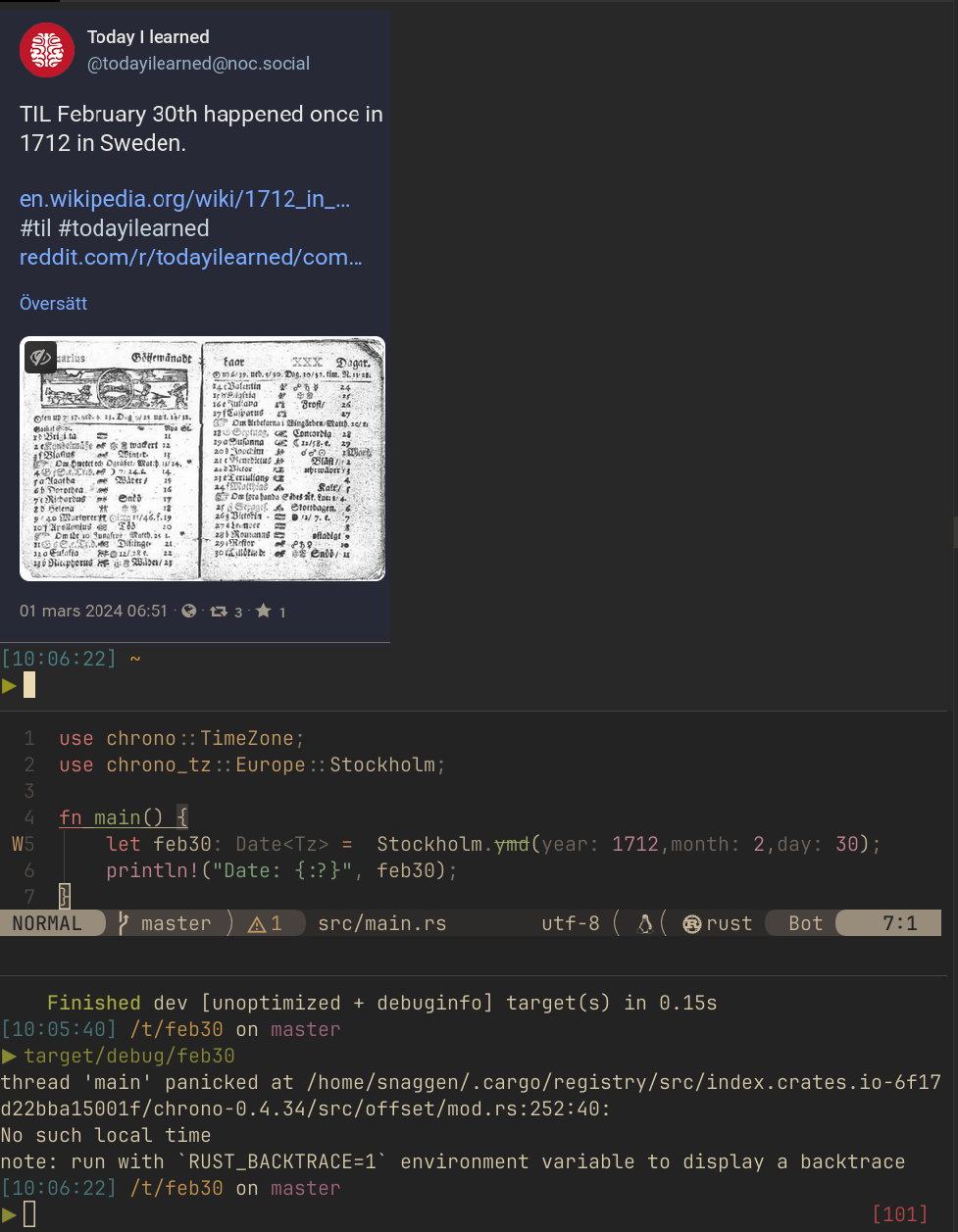this post was submitted on 01 Mar 2024
135 points (97.9% liked)
Rust
6345 readers
35 users here now
Welcome to the Rust community! This is a place to discuss about the Rust programming language.
Wormhole
Credits
- The icon is a modified version of the official rust logo (changing the colors to a gradient and black background)
founded 2 years ago
MODERATORS
you are viewing a single comment's thread
view the rest of the comments
view the rest of the comments

Most people are flexible about that already. If you stay up to ten past twelve, do you say "I really need to get to bed now, I have work tomorrow" or do you say "I really need to get to bed now, I have work today"?
The same will be true for morning and evening in everyday speech, it follows your sleep schedule, which follows the sun. Just like summer can already mean July or December, depending on your longitude.
I wasn't clear enough. But in a contry where the sun rise at 20:00, the weekday looks like:
And phares like "let's meet on Tuesday“ without hour indication could either mean end of day 1 or start of day 2. Likewise "let's meet the 20th” (assuming the 20th is a Tuesday) could either mean end of day 1 or beggining of day 2.
--
And alternative be to have
Which solve the issue of "let's meet on Tuesday”, but not “let's meet the 20th”.
Yes, that's one actual problem that is not covered by everyday speech as it is in use today.
I think it would be very quickly solved by language evolution. E.g. we'd switch to something like "the evening on the 20th" or "the third day next week" (weeks are defined by the presence of weekends, just like they are today). But nonetheless it's a valid argument.
Edit: even today weekends cover multiple days. However you define a weekend now can probably be used to define a day in the global UTC system.